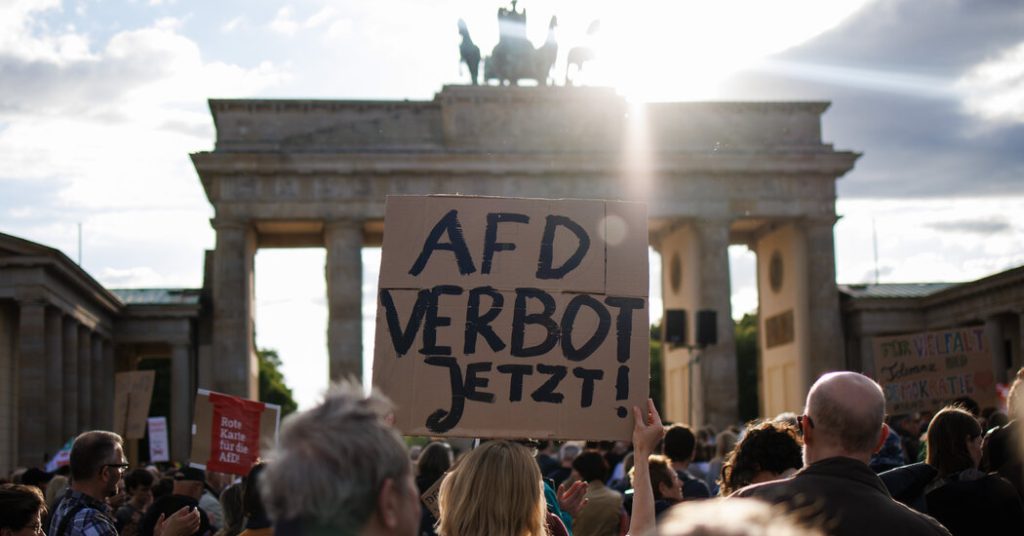The far-right Alternative for Germany party, known as AfD, was initially poised for a successful year, having achieved significant popularity in the country and potentially reaching its goal of moving from the margins to the mainstream. However, recent scandals and controversies have cast doubt on the party’s future, as members have been embroiled in spying and influence peddling scandals, secret discussions about deporting immigrants, and extreme statements. The party, already labeled a “suspected” extremist group by German authorities, is facing a backlash that threatens to undo the progress it had made into the mainstream.
Despite facing setbacks and a backlash, the AfD is still the second-most popular party in Germany, although recent events have led to internal conflicts and the censure of some important members. The party’s prospects for the upcoming European Parliament elections have become shakier, but it is still expected to win more seats than before in both the European Parliament and state elections. The core of radical right-wing supporters remains loyal to the party, even as some voters have had second thoughts about supporting the AfD.
Recent scandals involving AfD members, such as spying allegations, questionable statements, and financial improprieties, have caused internal upheaval and drawn widespread criticism. The party’s attempts to broaden its appeal while maintaining its extremist core risk alienating both segments of its support base. With other parties potentially peeling off AfD voters and new political movements emerging as threats, the party faces a difficult balancing act that may jeopardize its future success.
The AfD’s support base may be vulnerable, particularly among voters who had recently turned to the party out of dissatisfaction with the government or as a protest vote. The drumbeat of scandal and controversy surrounding the party has turned off some of these new supporters, prompting the leadership to mobilize a broader electorate beyond the far-right milieu. In regions where the party had made inroads, like Bavaria, there have been indications of a retraction in support as some new applicants withdraw their applications due to the party’s negative image.
While the recent elections in Thuringia offered a mixed picture of the AfD’s future, with the party performing differently in various seats, it managed to secure a majority in some municipal councils. This shift in local politics could have trickle-up effects on federal elections, potentially legitimizing the party’s presence and influencing future outcomes. As the AfD navigates a path to maintain its appeal and reach beyond its traditional strongholds, it must contend with internal dissent, external challenges, and a changing political landscape that may impact its long-term viability.








